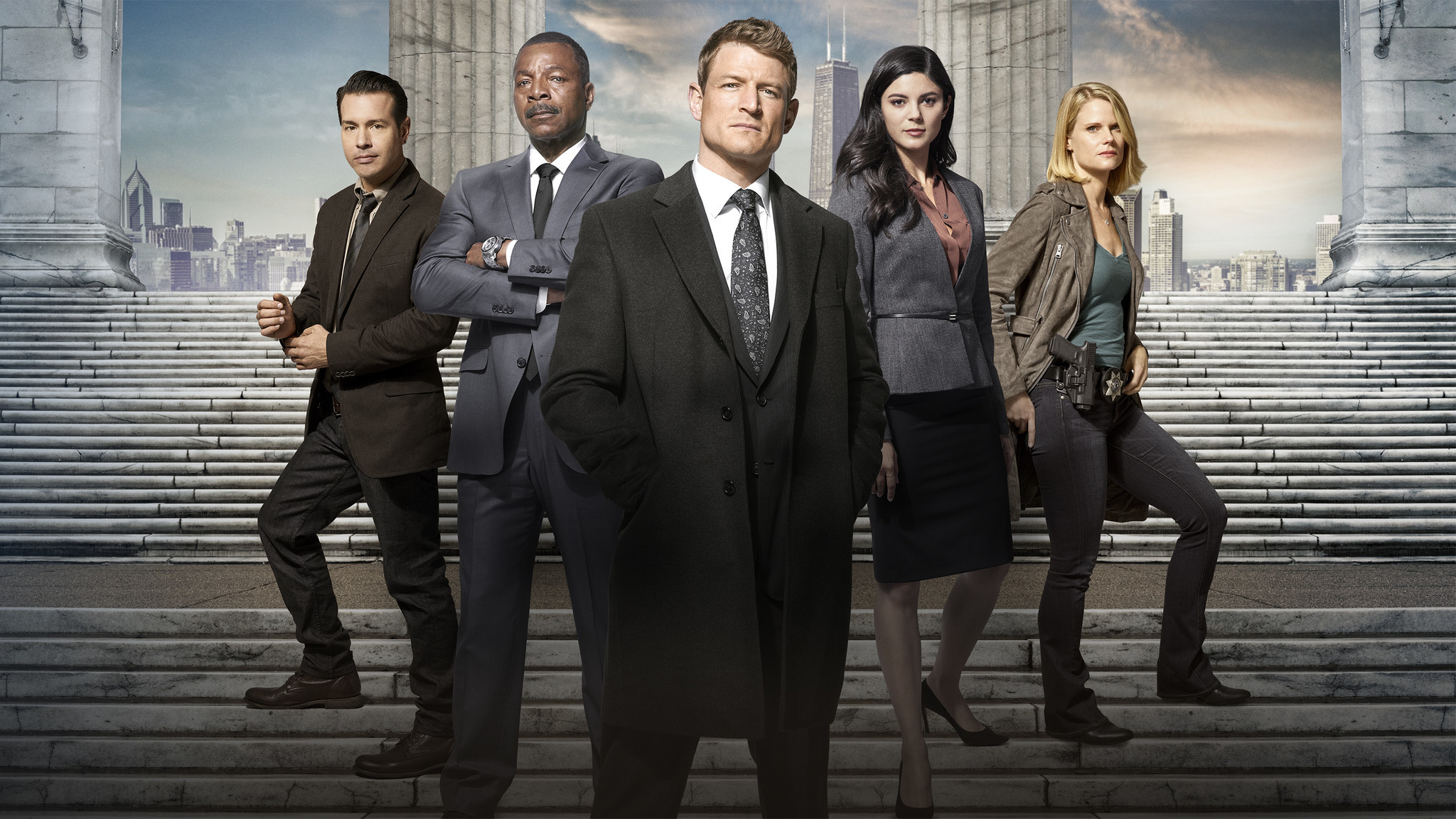Are crime dramas popular because you see cases getting resolved and justice being done, which doesn’t always happen neatly in real life?
That’s maybe a good analysis of why these shows work. We like to have conclusions, we all more or less would like to have things settled, something final, something definitive, and very often in life things are not that black and white with a nice neat ending. We present these stories where the ending may not be the one you agree with so you as an audience member you say, that’s bullshhh and throw your shoe at the television. That’s entertainment as well.
Chicago Justice is the fourth instalment of Dick Wolf’s Chicago franchise. How does Justice fit in?
In any infrastructure of city government where you have various departments it seems to make a lot of sense. The police department serves the public, the fire department serves the public, hospitals serve the public and what we do on Chicago Justice is serve the public, by prosecuting criminals and hopefully getting it right most of the time to keep the innocent people from going to jail. It really integrates these governmental agencies and these various branches that represent people in Chicago in an extremely inventive and probably very accurate way.
And these departments never operate independently in real life.
It gives us a great opportunity not only to entertain you but to show audiences how these entities actually work and represent the people of a city. It’s good for drama also I think because when we do crossovers it’s very interesting to see people from one show go to another and have a role there that makes a lot of sense.










